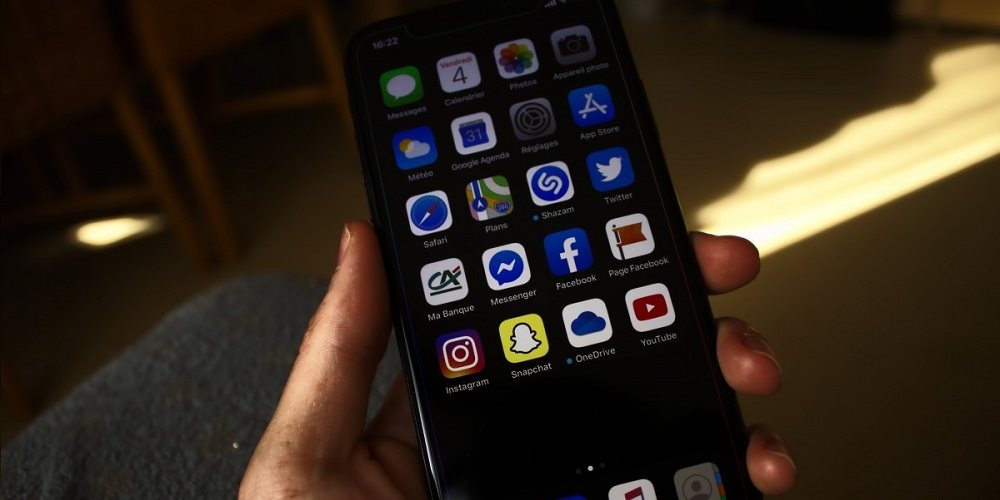When you venture out for the day, you check your weather app to see if storms are on the way. If there’s a storm system moving through, you bring an umbrella or raincoat, just to play it safe. The forecast helps you plan for the day, anticipating problems that might come your way.
NOVID, developed by Carnegie Mellon University professor of mathematics and Expii founder Po-Shen Loh, applies the same principle to the probability of encountering COVID-19. Users can see, in real-time, the immediate threat of COVID-19 in their circles monitored by degrees, in the style of “six degrees of Kevin Bacon,” Loh joked.
Because NOVID helps pre-detect risk, opening the free app is less about telling someone they already have COVID and more about informing someone of their risk of contracting it so they can make better decisions about how to avoid it. Loh hopes the experience can give back some autonomy to users when it comes to understanding how the disease spreads and the risks associated with their choices.
Users can see how many degrees away a positive COVID-19 test is from them, up to the 12th degree, which, in layman’s terms, is pretty far away. If someone is that far from COVID-19, they might opt for a socially distanced and masked meetup in the park. But “if [coronavirus] is one degree away from me, I’m going to be very careful about wearing a mask at all times,” Loh said.
Because data and infection rates change day to day, it’s not unreasonable to assume a user’s decisions might, too. For many, quarantining for two weeks is unfeasible due to work or other commitments.
Instead, NOVID users have data on what their risk level is today — a metric that’s worked well on the college campuses that have asked their students to download NOVID, including Georgia Tech, West Virginia University, Grand Valley State University, and Carnegie Mellon.
No students, faculty, or staff are required to download to the app, but the more it’s downloaded, the more effective it is. When someone on campus tests positive, they can record the test results, confirming the validity of the positive test in the app with a numerical key provided by the health center (in partnership with NOVID). From there, the app informs not only the people that interacted directly with the positive user but waves further out, so that they can plan and make decisions accordingly.
“It’s not an app to track you — it’s an app for you to track COVID-19,” Loh said. Interactions are only recorded between users within 6 feet of each other for more than15 minutes. Unlike other apps on the market, it won’t just warn you when you’ve come in direct contact with a COVID-positive individual, but also when people several degrees removed from you and your contacts have had it.
While it might seem like an obvious approach to providing coronavirus information in 2020, NOVID is the only COVID-19 app on the market to take this approach. “NOVID isn’t a contact-tracing app,” Daryl Weinert explained over email. As Carnegie Mellon’s COVID-19 coordinator and the chief of staff and vice president for Strategic Initiatives, Weinert said its ability to track the approaching spread of coronavirus made it a good fit for the community. “It’s designed to provide ‘early warning’ information to users regarding the spread of the virus in their extended networks, which is what makes it unique.” It also doesn’t hurt that NOVID was made with the help of more than 20 CMU students and alumni.
In addition to being a pre-detection tool, rather than a tracking tool, another element that makes NOVID unique is the way interactions are tracked between users. Instead of using the Google Apple Exposure Notification (GAEN) protocol that most other apps rely on, NOVID created its own.
NOVID does use Bluetooth and WiFi, like the other apps, but it also has the benefit of ultrasound technology. In conjunction with Bluetooth, ultrasound makes the pre-detection tool smarter. Bluetooth alone can often create false touchpoints between two people because it passes through walls and floors.
With the help of ultrasound, the signals bounce off materials and structures instead of passing through them. According to NOVID’s research, this helps avoid false interactions 99.6% of the time, which stands in stark contrast to the 50% accuracy reported by some GAEN apps.
In addition to its accuracy, ultrasound can provide more privacy, Loh explained. Without the use of GPS, NOVID tracks who a user is close to, but not where they are. Removing location, in addition to encrypted data, makes the identity of users completely anonymous.
NOVID is partnering with universities, but anyone can download the app to start creating a network today. CMU encouraged campus members to download NOVID as just one tool to help mitigate the spread of COVID-19, in addition to widespread testing and Pennsylvania’s COVID Alert app.
Loh echoed a similar sentiment when it comes to tracking and preventing the spread of the coronavirus: “If you’ve got enough storage on your phone, why not download more than one app?”

